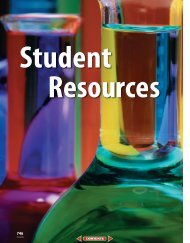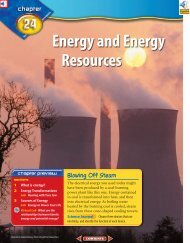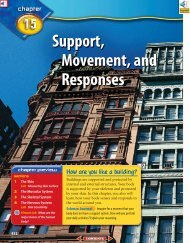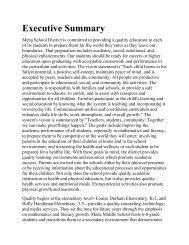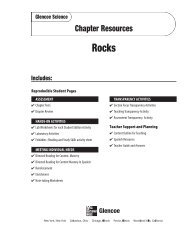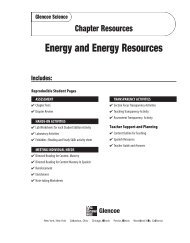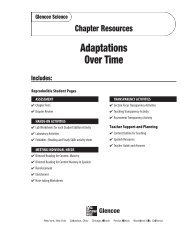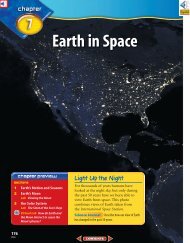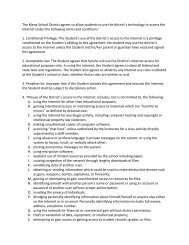Student Resources—746
Student Resources—746
Student Resources—746
Create successful ePaper yourself
Turn your PDF publications into a flip-book with our unique Google optimized e-Paper software.
Science Skill Handbook<br />
Science Skill Handbook<br />
Recognize Cause and Effect A cause is<br />
a reason for an action or condition. The<br />
effect is that action or condition. When<br />
two events happen together, it is not necessarily<br />
true that one event caused the<br />
other. Scientists must design a controlled<br />
investigation to recognize the exact cause<br />
and effect.<br />
Draw Conclusions<br />
When scientists have analyzed the data<br />
they collected, they proceed to draw conclusions<br />
about the data. These conclusions are<br />
sometimes stated in words similar to the<br />
hypothesis that you formed earlier. They<br />
may confirm a hypothesis, or lead you to a<br />
new hypothesis.<br />
Infer Scientists often make inferences based<br />
on their observations. An inference is an<br />
attempt to explain observations or to indicate<br />
a cause. An inference is not a fact, but a<br />
logical conclusion that needs further investigation.<br />
For example, you may infer that a<br />
fire has caused smoke. Until you investigate,<br />
however, you do not know for sure.<br />
Apply When you draw a conclusion, you<br />
must apply those conclusions to determine<br />
whether the data supports the hypothesis. If<br />
your data do not support your hypothesis, it<br />
does not mean that the hypothesis is wrong.<br />
It means only that the result of the investigation<br />
did not support the hypothesis.<br />
Maybe the experiment needs to be<br />
redesigned, or some of the initial observations<br />
on which the hypothesis was based<br />
were incomplete or biased. Perhaps more<br />
observation or research is needed to refine<br />
your hypothesis. A successful investigation<br />
does not always come out the way you originally<br />
predicted.<br />
756 STUDENT RESOURCES<br />
Aaron Haupt<br />
Avoid Bias Sometimes a scientific investigation<br />
involves making judgments. When<br />
you make a judgment, you form an opinion.<br />
It is important to be honest and not to<br />
allow any expectations of results to bias<br />
your judgments. This is important throughout<br />
the entire investigation, from researching<br />
to collecting data to drawing<br />
conclusions.<br />
Communicate<br />
The communication of ideas is an<br />
important part of the work of scientists. A<br />
discovery that is not reported will not<br />
advance the scientific community’s understanding<br />
or knowledge. Communication<br />
among scientists also is important as a way<br />
of improving their investigations.<br />
Scientists communicate in many ways,<br />
from writing articles in journals and magazines<br />
that explain their investigations and<br />
experiments, to announcing important discoveries<br />
on television and radio. Scientists<br />
also share ideas with colleagues on the<br />
Internet or present them as lectures, like<br />
the student is doing in Figure 15.<br />
Figure 15 A student communicates to his peers<br />
about his investigation.



